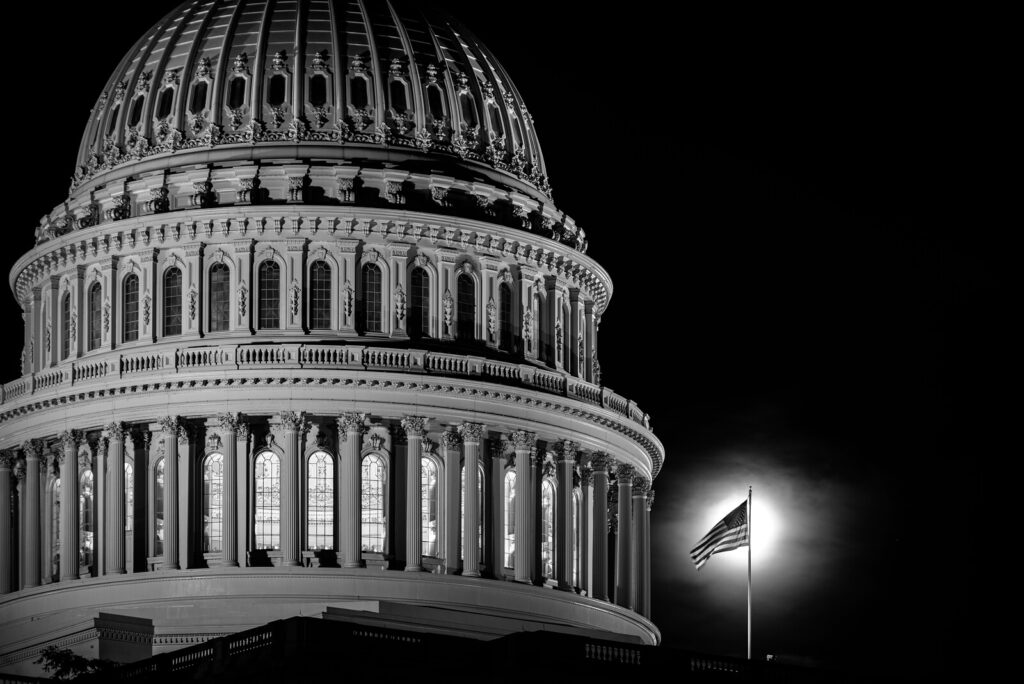Senate Majority Leader Chuck Schumer finally took the bit in his teeth and rammed through three of the most important executive branch nominations to lead the Joint Chiefs of Staff, the Army and the Marine Corps. In overwhelming bipartisan votes, Sen. Schumer, D- N.Y, broke Sen. Tommy Tuberville’s hold on these three nominations, but over 300 remain blocked.
This is a short-term, partial solution to a problem that requires a long-term solution. In defeat, Sen. Tuberville (R-Ala.) puffed out his chest and declared, “to be clear, my hold is still in place… If the Pentagon lifts the policy, then I will lift my hold.” It is estimated it would take months of Senate calendar time to move the rest of these stalled nominations the same way.
Sen. Tuberville has been blocking senior military nominations in an attempt to force the Department of Defense to end a policy that covers travel expenses for service members seeking prenatal care including abortions.
The Navy is still without a confirmed leader and will soon be joined by the Air Force. Also being held up are the nominee for the Undersecretary of the Air Force, the Air Force Department’s number two civilian position and the next heads of the Missile Defense Agency, U.S. Cyber Command, U.S. Indo-Pacific Command, the Navy’s 7th Fleet and 5th Fleet — which oversee the Pacific and Middle East — and the next U.S. military representative to NATO .
The holds are damaging the U.S. military
And if you don’t think this adversely impacts U.S. military effectiveness, you are mistaken.
Almost daily we see articles by members of Congress from both parties, or retired senior military officers, decrying Tuberville’s obstructionism and pointing out how it is damaging national security. Yes, units are still led by officers who agree to stay on in an acting capacity until a replacement is confirmed, or the nominees to become head of a service take charge in an acting capacity pending confirmation.
But serving in an acting capacity means the individual lacks some of the legal and budgeting authorities that a confirmed leader would be able to exercise such as hiring staff or enacting any meaningful changes within the organization. They are only holding the job until a permanent appointee takes their place or they are confirmed.
As Brig. Gen. Patrick Ryder, assistant to the Secretary of Defense for Public Affairs, told reporters, that means the big decisions regarding national security can’t be made because certain “authorities” can “only be exercised by a Senate-confirmed leader.”
Further, personnel in an acting capacity have to be cautious not to take any action or say anything that might look like they are “assuming confirmation,” which can tank a nominee when the Senate finally votes.
So even if you don’t care about the 300 or so senior military leaders, their families and the hundreds of more junior staff officers who would move to new positions with them being jerked around by one poorly informed senator, you should care that our military services, all of them, are increasingly operating at decreasing efficiency.
Senate leadership must find a permanent solution
Now that one senator has demonstrated how the work of an entire government department can be stymied indefinitely, we should anticipate that others will try this type of extortion in the future to further a pet policy position.
It is well past time for the Senate to stop this nonsense by one rogue member, and the Senate can take action to end Tuberville’s media show. The Senate needs a mechanism for terminating a disruptive hold when there is almost no other support among senators to continue the hold.
Tuberville is using what is called a senatorial hold, which is an informal practice whereby senators communicate to Senate leaders their policy views regarding matters available for floor consideration. Unique to the upper chamber, senators place holds to accomplish a variety of purposes, including to express objections to a particular proposal or executive branch nomination. But ultimately the decision to honor a hold request, and for how long, rests with the majority leader.
“Scheduling Senate business is the fundamental prerogative of the majority leader, which is typically carried out in consultation with the minority leader,” according to the Congressional Research Service.
Majority Leader Schumer can end this circus
Article I, Section 5 of the Constitution says each House may determine the rules of its proceedings, and there is a Senate Standing Committee on Rules and Administration empowered to do so. The Senate has added new rules gradually over time and revised the aggregate collection of rules six times throughout its history.
Majority Leader Schumer obviously knows far more about Senate rules and operating procedures than I do. But since senatorial holds are an informal practice, an option the majority leader should consider is to encourage his colleagues to establish a formal Senate rule that could be used to limit holds in cases where virtually all other senators are opposed. This could be done by permitting a disruptive hold to be ended on a two-thirds majority vote in the Senate.
It’s long past time for the Senate to act to end the wrongheaded actions of one person, and if it fails to act then it is complicit in his damaging actions.







